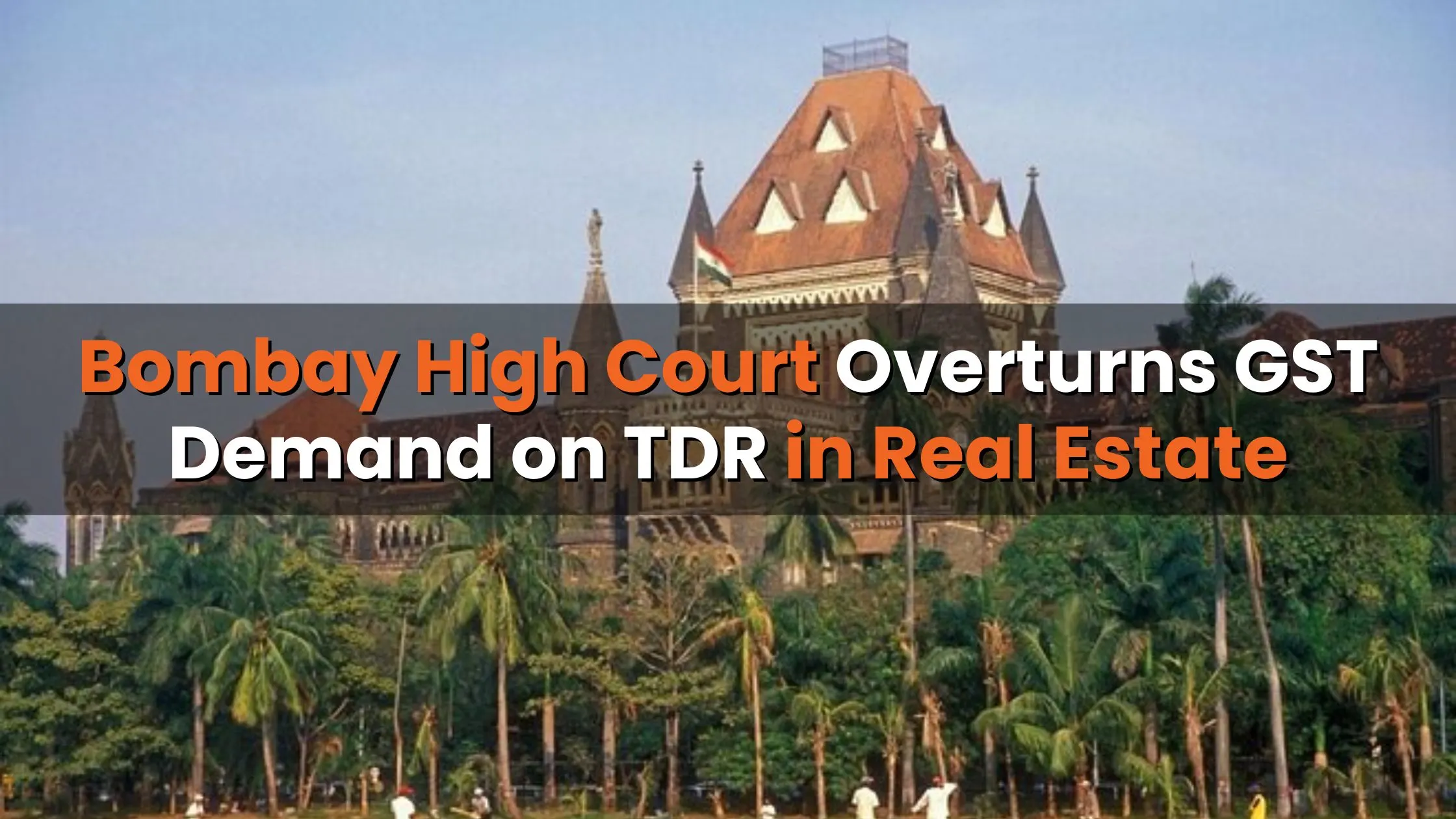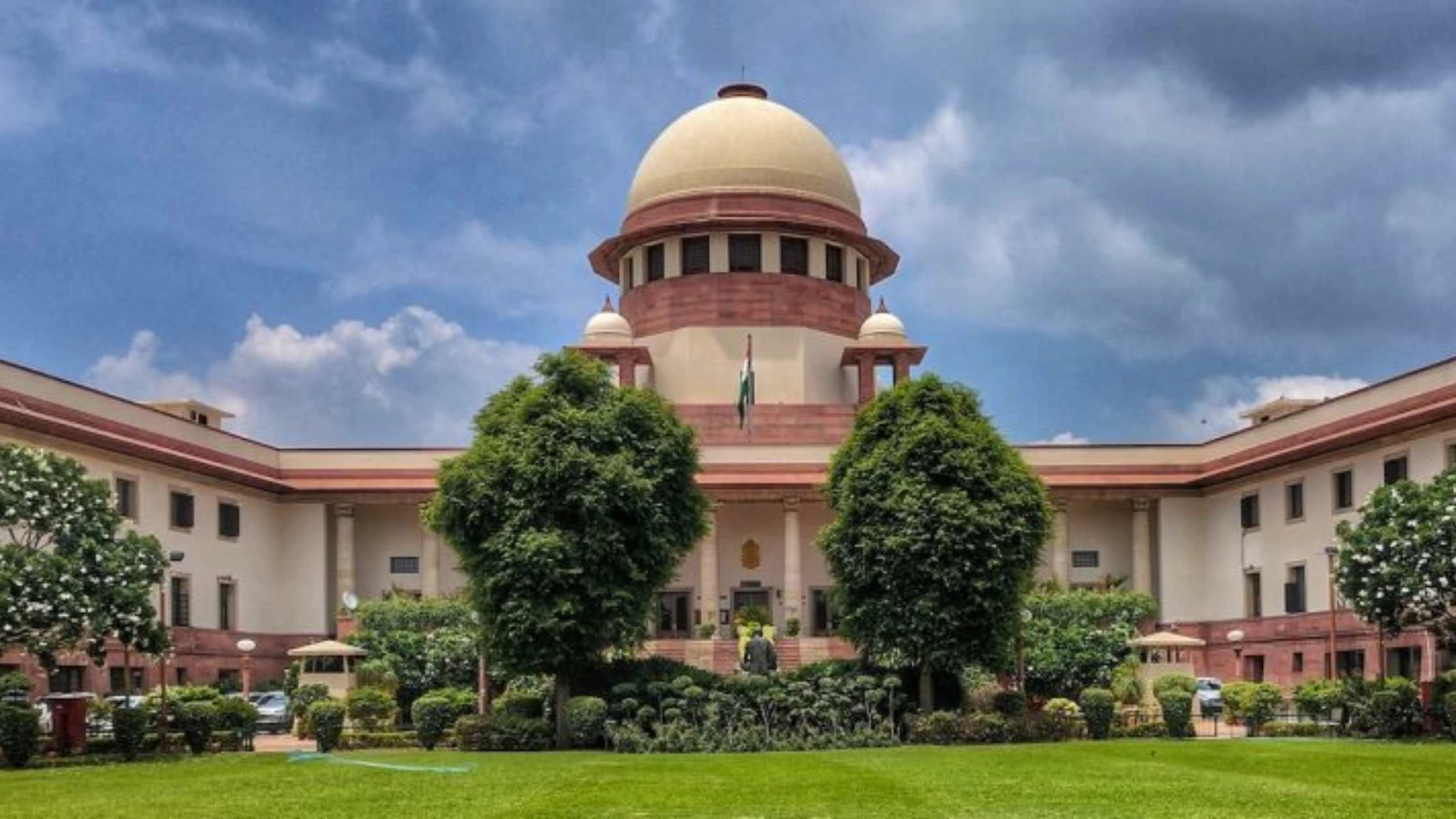Table of Content
▲
In a landmark decision that clarifies the real estate sector in Maharashtra, the Nagpur bench of the Bombay High Court applied the "no taxable supply or transfer of development rights under the deed" ruling to a GST demand on Transferable Developmental Rights (TDR) when it was used by a developer. The unanimous judgment, rendered by justices Avinash Gharote and Abhay Mantri, will lay a significant precedent for other forthcoming similar matters on a going forward basis. The judgment has serious consequences for real estate developers in the state.
Understanding the Case: The Background
The case follows a show-cause notice against Shrinivasa Realcon, a developer based in Nagpur, on August 14, 2024, and a GST order dated December 10, 2024. The issue centered on a development agreement on April 7, 2022, in respect of a residential building on a plot area of 8,000 sq. ft. in mouza Lendra. Under the contract, the landowner engaged a developer in consideration for ₹ 7 crore and two flats.
However, tax authorities contended that there was a taxable transfer of development rights for GST. The demand was contested by Shrinivasa Realcon ,contending that this was construction solely based on the Floor Space Index (FSI) or statutory increase, and that TDR was not relevant at all.
Also Read: Macrotech Developers Unveils Bold ₹8,000 Crore Land Acquisition Plan for FY25
Key Arguments and Legal Framework
Shrinivasa Realcon was represented by senior counsel Akshay Naik and Abhishek Bhoot. The arguments they presented indicated that Shrinivasa Realcon's arrangements were not a transfer or purchase of TDR or FSI from third parties, but simply relying on the FSI permitted under the law or any statutory amendment.
The legal question in the dispute related to Entry 5B of the GST notification, dated June 28, 2017, which was amended on March 29, 2019, which provides for taxation of services that consist of a transfer of TDR or FSI for construction purposes. The court pointed out that the GST law did not define a ‘transfer of development rights’.
The court also noted Clause 11.2 of the Unified Development Control and Promotion Regulations denying TDR as compensation in FSI by the planning authorities. This clause further indicated that TDR does not apply in context of the agreement in question.
Bombay HC’s Ruling
The bench held that the development agreement did not contain any mention of the transfer of development rights. Moreover, the bench rejected the tax department's reliance on Clause 18 of the development agreement, which only described compliance under the Maharashtra Apartment Ownership Act, 1970, but did not establish the transfer of rights.
In its judgement, the court held that the transaction did not fall within Entry 5B of the GST notification and quashed both the show-cause notice and the final tax order. The judgement provided that the GST demand could not be sustained as no taxable event had occurred in the context of GST law.
Key Takeaways from the Judgment
1. No Actual Transfer of Development Rights (TDR): The court held that the agreement did not involve the trading or transfer of TDR.
2. Entry 5B Not Applicable: The GST provision related to TDR was deemed inapplicable in this case.
3. Absence of Legal Definition: The GST law lacks a clear definition of ‘transfer of development rights,’ creating ambiguity.
4. Existing FSI Utilized: The developer relied on existing FSI or statutory increases rather than external TDR.
5. Clause 18 Irrelevant: The court ruled that Clause 18 of the agreement did not substantiate the tax department’s claims.
6. Demand Set Aside: Both the show-cause notice and the GST order were quashed, offering relief to the developer.
Implications for the Real Estate Sector
The most recent decision of the Bombay HC has given much-needed guidance for real estate developers dealing with a GST landscape that is a patchwork of complex rules and multiple interpretations. It is also underscores the critical consideration of distinguishing between the inherent FSI (floor space index) of a property and an additional TDR (transfer of development rights) in any development agreement.
The ruling also shows that there has to be a clear definition in the GST legislation to clear any ambiguity while also providing a level playing field for taxpayers, rather than misleading taxpayers into uncertainty, as demonstrated in this case. Real estate developers may rely on this judgment as a benchmark for structuring agreements when faced with unwarranted GST claims.
Also Read: Housing Properties Registrations in 8 Cities Jump 77% in FY25 to 5.44 Lakh
Conclusion
The Bombay HC’s ruling in the matter of Shrinivasa Realcon in the favour of the real estate sector has been a monumental win and would likely pave the way for other similar disputes. The court has upheld the demand to quash GST on TDR or seek relief from GST. Thus, once again, it is to be noted that clarity in law and following the principles of strict interpretation of laws, and by focusing on the main tenets of regulations, has been supported.
For developers, this case opens dialogue on providing clarity in the interpretation of GST provisions applicable to TDR and facilitates compliance with the legislation while protecting developer’s rights. As the real estate sector evolves the principles related to taxation will be crucial for future sectoral growth.
Follow AquireAcers Whatsapp Channel to Stay Updated With The Latest Real Estate News






Ans 1. The court ruled that there was no taxable event concerning the transfer of development rights (TDR) in the agreement, providing relief to real estate developers and setting a precedent for similar cases.
Ans 2. The issue revolved around whether the development agreement involved a taxable transfer of development rights under GST law.
Ans 3. TDR (Transferable Development Rights) refers to the rights granted to landowners to transfer unused development potential of their land to another location, often used for construction purposes.
Ans 4. The court found that the agreement relied solely on the inherent Floor Space Index (FSI) and statutory increases, without any actual transfer or purchase of TDR.
Ans 5. Entry 5B pertains to taxation on the transfer of TDR or FSI for construction purposes. However, the court held it was not applicable in this case due to the absence of a TDR transfer.
Ans 6. It provides clarity on the distinction between inherent FSI and external TDR, helping developers avoid unwarranted GST claims in similar agreements.
Ans 7. Clause 11.2 clarified that TDR compensation in FSI did not apply in the context of the agreement, further strengthening the developer's position.
Ans 8. The judgment emphasizes the need for clear GST provisions on TDR, reducing ambiguities and ensuring fair compliance for developers.
Ans 9. Developers should structure agreements carefully, ensuring reliance on inherent FSI rather than external TDR to avoid unnecessary tax liabilities.
Ans 10. Yes, this judgment sets a legal precedent that other courts may consider in future disputes, potentially reducing unwarranted GST claims on TDR in the real estate sector.